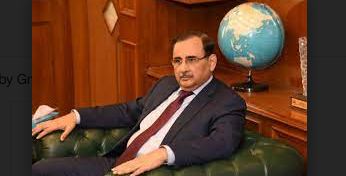DNA
ISLAMABAD: The Federation of Pakistan Chambers of Commerce and Industry’s Businessmen Panel (BMP) has denounced the government for not keeping a check on foreign exchange market, as the State Bank’s foreign exchange reserves dropped by $237 million to $7 billion in the week ending Dec 1, because debt servicing on foreign loans continues to eat up SBP’s holdings.
FPCCI former president Mian Anjum Nisar said that rhe exchange rate looks stable, but increasing debt servicing costs without significant inflows have put the economy at risk, as that Pakistan’s economy was stuck in a low-growth trap with poor human development outcomes and increasing poverty.
The country’s total liquid foreign reserves stood at $12.1bn, including $5.09bn held by commercial banks, the central bank said. The SBP has now lost more than $1.7bn since mid-July.
Mian Anjum said the economic conditions leave Pakistan highly vulnerable to climate shocks with insufficient public resources to finance development and that international experience suggests that domestic debt reprofiling did not always work unless associated with sharp and sustained structural reforms. He said the IMF had identified the need for reforms over three to four decades ago, but they were still pending
With the formation of the Special Investment Facilitation Council (SIFC), the government aims to bring up to $100bn in investments in the next three to five years, particularly from the Middle East.
Memorandums of understanding (MOUs) have been signed with the UAE, Kuwait and Saudi Arabia for billions of dollars, which has helped stabilise the domestic market while the stock exchange has been crossing one milestone after another. However, the anticipated $700m from the IMF is yet to materialise. While these funds could bolster the SBP’s reserves, ongoing debt servicing may continue to erode them.
The BMP Chairman pointed out several times that the State Bank has been buying dollars for debt servicing and to keep the reserves at the current level. This buying has resulted in a tight grip over imports, which fell by 17.3 per cent year-on-year to $21.5bn during the first five months (July to November) of the current fiscal year.
This steep decline in imports with a slight improvement of exports by 1.9pc reduced the trade deficit by 33.6pc, or $9.4bn.
Not only are the importers in trouble, but the State Bank has grossly restricted the profits outflows, he said.
In July-October, the outflows for profits and dividends were $485m compared to just $71m in the same period a year ago.
The outflows of profits were relaxed before the IMF talks, he said, adding that this could again hurt the foreign direct investment inflows. Pakistan received just $524m in FDI during July-October, an annual increase of just 7pc.
Adding to the concerns, the country’s foreign debt and liabilities rose by $3.48bn, reaching $128.09bn in the first quarter of FY24.
Mian Anjum Nisar said the economic conditions leave Pakistan highly vulnerable to climate shocks with insufficient public resources to finance development and that international experience suggests that domestic debt reprofiling did not always work unless associated with sharp and sustained structural reforms. He said the IMF had identified the need for reforms over three to four decades ago, but they were still pending
The monthly headline consumer inflation remains high but is projected to drop over the next several months. The exchange rate is no longer deteriorating as it was until the end of August, thanks to the army-sanctioned actions against illegal dollar trade and unchecked smuggling to Afghanistan. The current account deficit is contained, and the haemorrhage of foreign exchange reserves stopped — for now.
The primary surplus target for the first quarter of the present financial year has been achieved. Nevertheless, this reduction in volatility has come at a heavy cost to economic growth, public and private investments, and jobs.
The major structural challenges — how to control debt accumulation and current account deficit without suppressing growth, increase one of the world’s lowest tax-to-GDP ratios of less than 9pc, boost industrial and agricultural productivity and exports, manage haemorrhage of resources through public sector entities, settle circular debt in the power sector without further raising the electricity prices and so forth — remain unaddressed.
He was of the view that Pakistan should resist the temptation to use short-term measures like domestic debt restructuring and attracting one-time investment without addressing the country’s big picture issues through reforms aimed at improving the larger business climate, taxation, human capital and business competitiveness.
He told that such steps could help once or twice, but it was no solution to Pakistan’s challenges, which could only be addressed by improving the business climate, providing a level playing field and removing distortions and tax exemptions. His remarks were in line with an earlier International Monetary Fund (IMF) advice to the government against creating a group of preferred investors.
He said that he hoped his institution could disburse up to $2 billion to the country during the current fiscal year, provided elections were held on time, and the present and new governments remain committed to reforms and deliver on promised efforts.

















